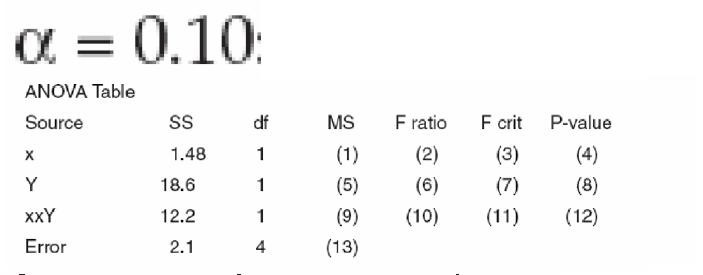CLSSBB Online Practice Questions and Answers
A team wants a technique for determining and displaying priorities based on frequency of various defect types. They should use:
A. written and diagrammed work instructions
B. flow charts and process maps
C. cause and effect diagrams
D. Pareto chart
E. relationship matrix
Find the value of (3) in the ANOVA table. Assume:

A. 16.4
B. 3.2
C. 18.6
D. 23.2
E. 4.54
F. 12.2
G. 0.525
H. 2.82
I. 1.48
J. 35.4
K. 0.10 L. 0.05 M. 0.01 N. 0.005 O. 0
If item A is more likely to be detected than item B which will have the highest Detection value?
A. item A
B. item B
C. cannot be determined
Is this a left-tail, right-tail or two-tail test?
A. no
B. left-tail
C. right-tail
D. two-tail
The two types of data that can be used in Statistical Analysis are Attribute and Variable.
A. True
B. False
Which of these elements are not included in Implementation plans?
A. Work breakdown structure
B. Risk management plans
C. Cost/Benefit ratios
D. Planned audits of work completion
Measurement __________ is defined as the difference between the observed and the expected values for a given set of data.
A. Breadth
B. Linearity
C. Range
D. Bias
Kaizens or Kaikakus and Six Sigma projects are intended to create breakthrough, significant process improvement versus minor, incremental improvements.
A. True
B. False
The purpose of using control charts is to:
A. determine if the process is performing within specifications
B. evaluate process performance over time
C. determine how to recreate the process
D. detect the causes of nonconformities
One of the metrics commonly used in Lean Six Sigma is DPU. This acronym stands for ___________________.
A. Date per usage
B. Deferred planned usage
C. Decreased production utilization
D. Defects per unit

